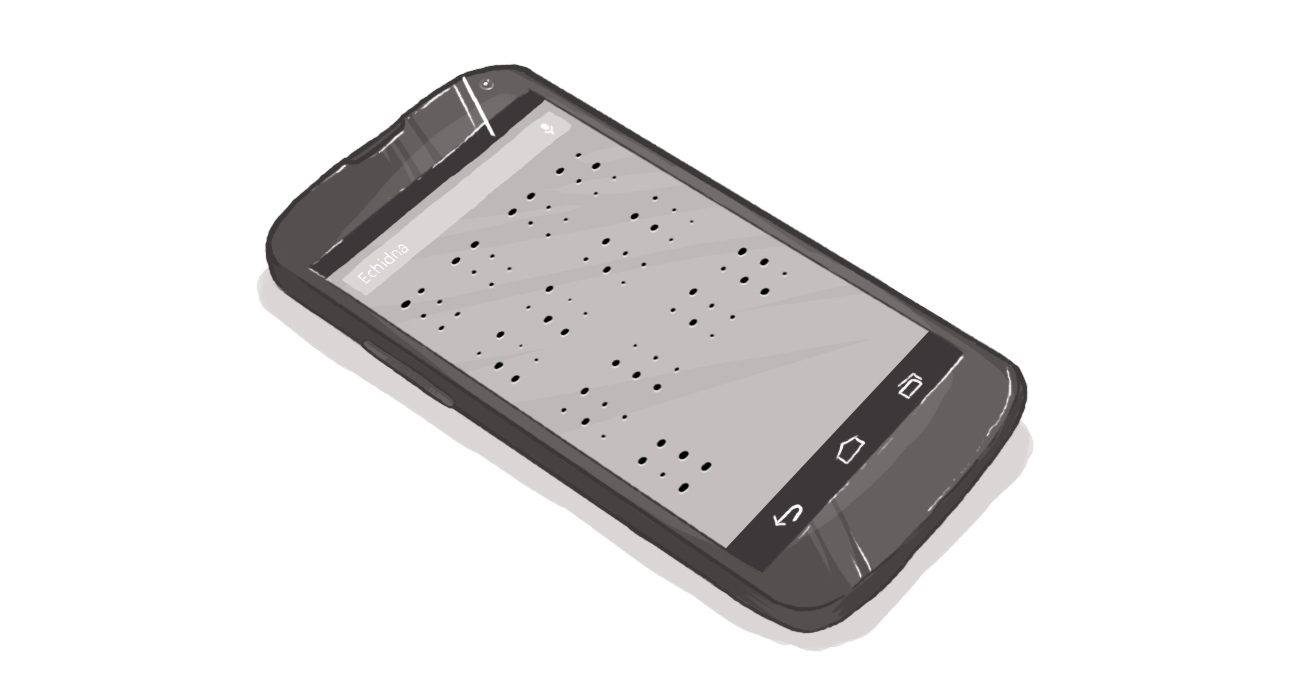World Sight Day 2014 - A Vision We Can All Share

On this World Sight Day 2014, I'd like to reflect on the status of the blindness community as I see it. All opinions herein are my own and many of my observations are purely anecdotal.
I had many thoughts on the subject, but this report from the CNIB (formerly the Canadian National Institute for the Blind) entitled"An Unequal Playing Field: Report on the Needs of People Who Are Blind or Visually Impaired Living in Canada"confirmed what I already suspected: there is so much yet to do for full inclusion of the blind and visually impaired community.
This national study surveyed 352 blind or visually impaired adults and 54 parents of blind or visually impaired children. Their key findings are damning:
- 48 per cent of all adult consumers reported gross annual incomes of $20,000 or less, regardless of marital or family status;
- 25 per cent of consumers aged 21 to 64 reported that they are employed, and 49 per cent reported that they do not have jobs
- 44 per cent of all adult participants reported that they get out of the house on a daily basis — 27 per cent of seniors and 57 per cent of working-age participants.
- Close to one-third of parents [of blind children] stated that their children never received birthday or other party invitations, 77 per cent said their children do not belong to clubs, and 74 per cent said their child does not play sports.
Sadly, none of these figures surprise me. I've always suspected blind people, especially those who are congenitally blind or visually impaired, lag behind their peers in some areas.
I'm not a huge part of the blind community, but I do observe it through local friends and acquaintances, adaptive sports leagues, and the virtual world of Twitter and blind-specific mailing lists. People appear disillusioned and frustrated, but most of all completely discouraged in their efforts to find work, volunteer, or have other involvement in their local sighted community. They believe it's too hard for them, as blind people, to do these things.
It is a huge challenge. And it can seem insurmountable if a person is unprepared. Educational difficulties, social challenges, a lack of training in self-advocacy and independent living skills, and access to public transport all play a role. But so does personal responsibility.
Education is a challenge. Too often it appears that vision-specific teachers rather than classroom teachers influence a student's academic progress and the subjects they study. They're often the 'go-to' person to teach the blind student, but if they're not familiar with a given subject, they can't provide the student with all the information they need to succeed. No amount of blind-specific instruction can replace a skilled classroom teacher. If a student is limited by the skills of others, they cannot adequately know what their own skills are and will lose confidence.
If they learn from a young age that some subjects are just too hard, how can they embrace the more challenging world of work and independence with a 'go get 'em' attitude?
Socialization is another stumbling block. Blind kids can often spend much more time than their sighted peers with adults, as guides and describers. They can miss out on social cues and interactions as a result.
Learning to talk to others about things that interest them, learning about one's own social preferences, and even learning to ask to join a group of kids to play are all essential skills that blind kids can miss out on. Sometimes parents and teachers will ask a sighted student to play with a blind peer; this can help, but in most circumstances it makes the relationship forced and one of the sighted student being a 'care giver' for their blind friend. Any time this happened to me, it ended up being me with one other peer and both of us feeling uncomfortable: me because I felt unnatural, and them (I suspect) wanting to play with their group of friends who weren't sure what we could all do together with me there.
Facilitating social interactions is necessary for adults to do for blind children, but that should come in the form of assisting them to find people to hang out with, and not hand-picking their playmates for them. Extending this to the adult world, most soft skills are learned young and through interaction with others. Networking and performing well in a job interview are made harder if something as basic as a handshake is never taught.
Self-advocacy and independence skills all come into play. Being able to say "I want to do this, please show me how," or "Thank you, but I don't need help right now," or "Can you please read this for me?" are essential in all aspects of life. Asking for or refusing help are things everyone can benefit from.
Teaching a person to look after themselves and their possessions teaches responsibility. Involving a blind kid in 'the daily grind' of chores and other tasks is a place to start: learning to cook, clean and do laundry will only better prepare someone for later life. These skills often go untaught. It would seem sighted parents are not sure how to teach something they perceive as purely visual and expect often unavailable blind-specific training is the only way for their children to learn these skills.
Independent travel increases confidence, but it's often difficult to achieve if public transport is unavailable. I've been a city kid all my life and have always lived near at least three forms of public transport. I grew up taking the bus with family and, once over my initial jitters, took to it wholeheartedly as an independent traveller. But I had a bus stop nearby, skilled blind-specific instructors to teach me the tricks of the trade and to push me to continue in spite of mishaps, and a family who encouraged all of this and expected me to practice my new skills. Too many don't have those things and rely on transport for persons with disabilities or cabs.
All options have their drawbacks and may explain why so few blind people get out regularly. But even without transport, good navigation skills (either by cane, magnification aid, or echolocation) are essential. In some circles even this is lacking.
All these skills will increase the chances of a successful, well-adjusted blind person, but I don't mean to suggest that all must be 100 per cent present to guarantee this. I know two blind people off the top of my head who are very successful, friendly, and giving men who are great at what they do. By their own admission, they struggle with some skills outlined above: one with food preparation; the other with independent travel. But they don't let these challenges (which are not entirely blind-specific) hold them back from being the best at what they do in other arenas.
The difference is not the skills one lacks necessarily, but the decisions one chooses to make with the skills they have. To suggest a person should be stellar at everything I've mentioned would be unreasonable, as much as I would wish it. After all, sighted people have varying degrees of all of these skills too, and no one is perfect.
Barriers are not just skills-based either. Many typical jobs teens would have, in the service industry (waiting tables, barista jobs, or retail), are not available to the blind or visually impaired. This limits their experience in the world of work and makes building a great resume a challenge. It's not impossible by any means, but more effort has to be made to find jobs that can make use of their skills while allowing them to perform all tasks of a given job. Many offices, for instance, aren't electronic yet, so even something as basic as a reception job would be a difficulty. Handwritten notes are often easier to make (who doesn't love a good post-it note?) but they're unreadable by scanners and other technical aids that can only handle typed text. The perceptions of the blind as either helpless people who will need assistance at every turn, or superheroes who will breeze through every task given to them are unhelpful and limiting.
The blindness community has so much work to do, but things are changing. The implementation and socialization of AODA certainly helps the ball rolling. And much progress will come from changes in societal attitudes that will result from these efforts. However, it's not just inclusionary efforts that have brought about the changes -- movements to integrate from within the blindness community have helped immensely.
On this World Sight Day 2014, we can "see" a community that is moving towards greater inclusion -- and that's a vision we can all share.
What is the status of visually impaired people now?
What is World Sight Day?
SUBSCRIBE TO OUR E-NEWSLETTER
 Subscribe
Subscribe


